第228章
The best judges of the matter will be the least anxious for a constitutional establishment of the trial by jury in civil cases, and will be the most ready to admit that the changes which are continually happening in the affairs of society may render a different mode of determining questions of property preferable in many cases in which that mode of trial now prevails. For my part, I acknowledge myself to be convinced that even in this State it might be advantageously extended to some cases to which it does not at present apply, and might as advantageously be abridged in others. It is conceded by all reasonable men that it ought not to obtain in all cases. The examples of innovations which contract its ancient limits, as well in these States as in Great Britain, afford a strong presumption that its former extent has been found inconvenient, and give room to suppose that future experience may discover the propriety and utility of other exceptions. I suspect it to be impossible in the nature of the thing to fix the salutary point at which the operation of the institution ought to stop, and this is with me a strong argument for leaving the matter to the discretion of the legislature.
This is now clearly understood to be the case in Great Britain, and it is equally so in the State of Connecticut; and yet it may be safely affirmed that more numerous encroachments have been made upon the trial by jury in this State since the Revolution, though provided for by a positive article of our constitution, than has happened in the same time either in Connecticut or Great Britain. It may be added that these encroachments have generally originated with the men who endeavor to persuade the people they are the warmest defenders of popular liberty, but who have rarely suffered constitutional obstacles to arrest them in a favorite career. The truth is that the general GENIUS of a government is all that can be substantially relied upon for permanent effects.
Particular provisions, though not altogether useless, have far less virtue and efficacy than are commonly ascribed to them; and the want of them will never be, with men of sound discernment, a decisive objection to any plan which exhibits the leading characters of a good government.
It certainly sounds not a little harsh and extraordinary to affirm that there is no security for liberty in a Constitution which expressly establishes the trial by jury in criminal cases, because it does not do it in civil also; while it is a notorious fact that Connecticut, which has been always regarded as the most popular State in the Union, can boast of no constitutional provision for either.
PUBLIUS
1. It has been erroneously insinuated. with regard to the court of chancery, that this court generally tries disputed facts by a jury. The truth is, that references to a jury in that court rarely happen, and are in no case necessary but where the validity of a devise of land comes into question.
2. It is true that the principles by which that relief is governed are now reduced to a regular system; but it is not the less true that they are in the main applicable to SPECIAL circumstances, which form exceptions to general rules.
3. Vide No. 81, in which the supposition of its being abolished by the appellate jurisdiction in matters of fact being vested in the Supreme Court, is examined and refuted.
____